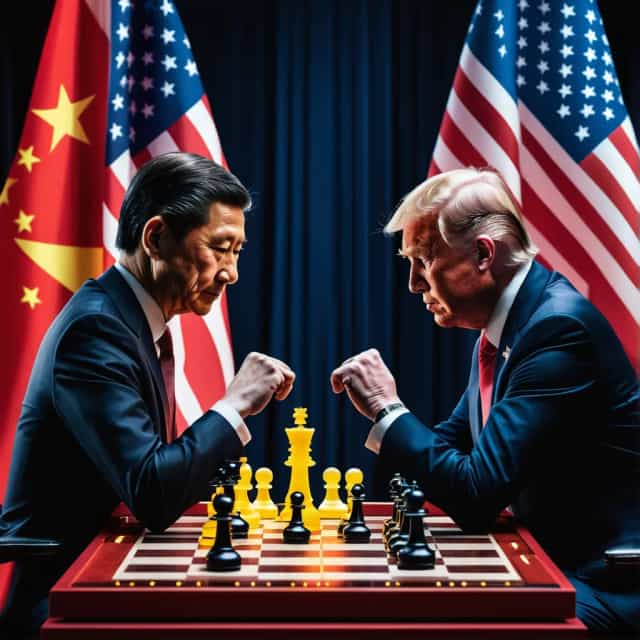
Image source: Block Media
South Korea Ends 7-Year Venture Ban for Digital Asset Firms: A New Era for Crypto Innovation
South Korea has officially lifted its seven-year ban on recognizing digital asset trading and brokerage firms as venture companies, signaling a pivotal shift in the nation’s regulatory landscape for cryptocurrency and blockchain businesses. This development, effective November 16, opens the door for these firms to access significant institutional benefits and marks a critical step in revitalizing the country’s digital asset ecosystem. Stakeholders have hailed the move as an essential foundation for fostering innovation and growth in this rapidly evolving sector.
Historic Policy Transition in Digital Assets
The South Korean Ministry of SMEs and Startups has amended the Special Act on the Promotion of Venture Businesses, removing digital asset trading and brokerage firms from the restricted industries list. This change enables these companies to apply for venture certification, granting them access to a range of advantages, including corporate tax reductions, eligibility for government-backed funding, and streamlined pathways to listing on the KOSDAQ stock exchange.
The regulatory ban, imposed in 2018 amidst concerns over speculative trading and illicit financial activities, had kept the sector in a state of exclusion. The government now attributes its decision to a more mature digital asset market and increasing recognition of the necessity to align with global regulatory trajectories. Officials have emphasized the importance of adapting to shifting economic and technological realities to remain competitive on the global stage.
Global Trends Influence South Korea’s Shift
South Korea’s policy adjustment mirrors regulatory advancements in regions like the United States and the European Union. Recent examples include the approval of Bitcoin spot ETFs in the U.S. and the rollout of the European Union’s Markets in Crypto Assets (MiCA) regulation, both of which signal a more structured approach to governing digital assets.
By contrast, South Korea has faced criticism for lagging behind in establishing a coherent regulatory framework. While legislative steps like the Virtual Asset User Protection Act aim to address critical issues such as investor safety, broader regulatory clarity remains incomplete. The recent removal of the venture restriction is a step toward closing this gap, but experts caution that further regulatory and infrastructural improvements are necessary to ensure the sector's sustainable growth.
Challenges Persist Despite Progress
While the policy shift provides opportunities for digital asset firms, industry observers note that significant barriers to entry persist. For years, cryptocurrency businesses in South Korea struggled with limited access to financial benefits, such as tax incentives and government-supported grants, due to their exclusion from the venture certification framework. This regulatory vacuum has stifled innovation and led prominent companies like Paycoin and Nexon to shrink operations or even relocate abroad.
Additionally, operational challenges, such as opening corporate bank accounts, remain a major impediment. Current frameworks do little to alleviate these issues for small to medium-sized enterprises (SMEs) and startups, which are often the most vulnerable to regulatory inefficiencies. Although the Financial Services Commission (FSC) has announced a limited phased program to allow roughly 3,500 entities to set up corporate accounts later this year, this initiative excludes many smaller firms and unregistered entities, creating disparities within the sector.
Industry Reaction and Investment Implications
Industry insiders have expressed cautious optimism regarding the policy shift. A veteran venture capital expert specializing in blockchain remarked, “This change signifies progress, but there’s still a long road ahead. Investment firms are more likely to consider digital asset projects now that the legal landscape is less ambiguous, but this doesn’t automatically translate into increased funding inflows.”
The expert further highlighted that improvements in financial infrastructure—such as seamless account creation processes and robust fund-tracking mechanisms—are critical for building investor confidence. These changes would pave the way for more meaningful engagement between venture capital and the digital asset ecosystem.
Echoing these sentiments, Kim Dong-hyuk, a leading analyst at Dispread Research, noted that the government’s shift from strict regulation to development-focused policies is a promising sign. He explained, “Access to tax breaks, simpler KOSDAQ listing requirements, and participation in government-backed initiatives can provide much-needed momentum for the industry. However, the lack of institutional support for businesses actively holding and trading digital assets still poses a major obstacle to scaling.”
Kim warned that unless these institutional gaps are addressed, the broader growth of South Korea’s blockchain and cryptocurrency ecosystem will remain constrained.
Building a Future-Ready Framework
As South Korea advances in integrating digital asset businesses into its institutional ecosystem, stakeholders are calling for the government to take a comprehensive approach. Key priorities include enhancing financial infrastructure, expanding access to corporate accounts for startups, and introducing wider regulatory protections.
Such measures are essential to fostering an environment that balances innovation with trust, paving the way for South Korea’s digital asset firms to compete on an international level. Addressing these foundational gaps will determine whether the lifted restrictions mark the start of a sustainable transformation or merely a symbolic gesture constrained by lingering inefficiencies.
South Korea’s ability to nurture its digital asset sector into a globally competitive industry will depend on its commitment to creating a regulatory and financial ecosystem where businesses of all sizes can thrive. By aligning with global best practices and proactively addressing domestic challenges, the nation has the potential to emerge as a leader in cryptocurrency innovation and blockchain technology.










